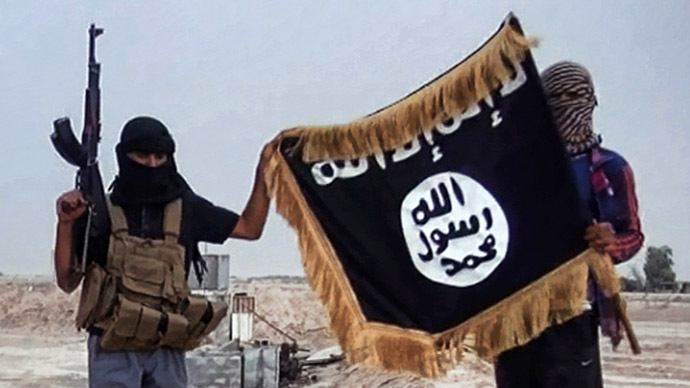US military vet: Traveling to fight ISIS 'like booking a flight to Miami'

A US military veteran said joining a Kurdish group fighting Islamic State militants in Syria was as “easy” as buying an airline ticket, highlighting the simplicity with which westerners have joined both Islamic State and its foes.
The veteran, "John," told Fox News in an exclusive interview that he found a Kurdish group known as YPG on Facebook, sending them his military credentials during the vetting process.
"What I believe is that they are European go-betweens, they are not in Kurdistan, they operate receiving information of interested Westerners, and then they either relay it or make a decision themselves of whether or not this person is suitable to work with the YPG," he said.
"They sent (angel) message saying I was approved and someone would be waiting on me."
Once approved, the rest was fairly simple.
"I just went online and bought a ticket. It was that easy. It was like booking a flight to Miami Beach," he said.
John said upon arrival, he was taken almost immediately to the front lines of fighting in Syria, where Islamic State (also known as ISIS or ISIL) battles both President Bashar Assad’s forces and myriad other groups jockeying for position in the war-torn nation.
"It's extremely dangerous in that they're taking anyone with no military experience, no age requirements, no physical restrictions,” he said.
"They are just taking people there, giving them a gun saying, 'Hey, good luck, buddy'," John said of the lack of training recruits receive.
He said they day he joined YPG, he was accompanied by another westerner, from Scotland. He added that he also met a Canadian, other Americans, and Britons.
Never paid by the Kurds he worked with, John has since come home, turning himself over to the American consulate in Iraq.
Yet his case underscores concerns in Washington and capitals across the Western world that the ongoing Syrian civil war and fighting in Iraq, where Islamic State has gained considerable sway in western territories and areas along the Syrian border, have become increasingly attractive for westerners, especially those with jihadist motivations.
Before stepping down in August - just as President Barack Obama had ordered US-led airstrikes on Islamic State positions in Iraq - longtime FBI Director Robert Mueller warned of Americans traveling to Syria and coming back with intentions “to undertake an attack upon the homeland.”
“[When] you have individuals traveling to those venues, you are concerned [first] about the associations they will make, and secondly about the expertise they will develop and whether or not they will utilize those associations, utilize that expertise, to undertake an attack upon the homeland,” Mueller told ABC News.
Three days after Mueller’s remarks, it was reported that Douglas McAuthur McCain, a 33-year-old American, was killed in Syria while battling alongside Islamic State. It was later reported that fellow native Minnesotan Abdirahmaan Muhumed, an employee of a Delta Airlines subsidiary in the Twin Cities, perished in the same battle. At least one American — a Florida man named Moner Mohammad Abusalha — has previously died in Syria after carrying out a suicide bombing mission for Nusra Front, an Al-Qaeda-related affiliate, in May.
“We think that there are approximately 12,000 fighters from at least 50 countries in Syria -- foreign fighters, including a small number of Americans -- that may have traveled to Syria since the beginning of the conflict,"said deputy State Department spokeswoman Marie Harf upon reports of McCain’s death. "They may all not still be there," she added.
US intelligence officials, speaking with anonymity, quickly announced after the McCain reports in late August that as many as 300 Americans were fighting along with Islamic State or related militants in Syria and Iraq.
“We know that there are several hundred American passport holders running around with ISIS in Syria or Iraq,” a senior US official said. “It’s hard to tell whether or not they’re in Syria or moved to Iraq.”
Yet in September, Jeh Johnson, secretary of the US Department of Homeland Security, said Islamic State did not pose a direct threat to the US.
“At present, we have no credible information that [Isis] is planning to attack the homeland of the United States,” Johnson said, echoing earlier sentiments expressed by Matthew Olsen, the head of the US National Counterterrorism Center.
Later that month, The Guardian reported, citing a “senior administration official,” that only 20 to 30 Americans had traveled to Syria to join Islamic State, affiliated jihadist groups, or groups opposed to Assad.
Meanwhile, in November, it was reported that several fighters from the US, Canada, the UK, Germany and other western nations had traveled to fight with Kurds against Islamic State in Syria and Iraq.












